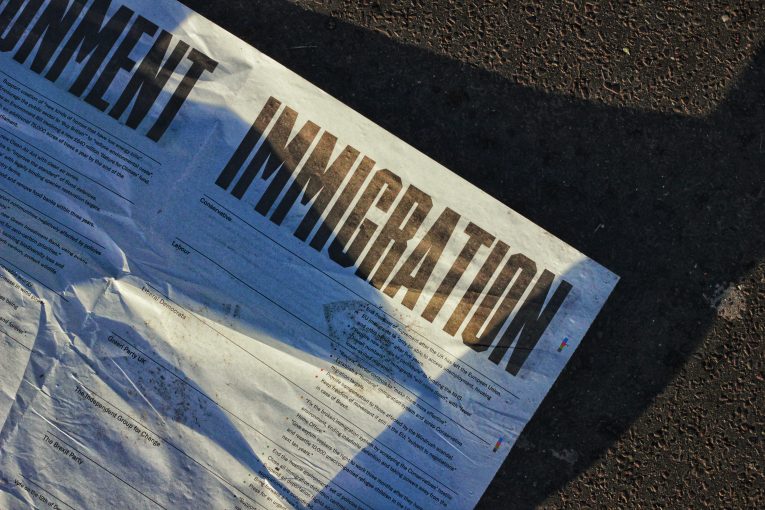

Via Unsplash
By Roni Ayalon
SACRAMENTO, CA – A coalition led by Assembly Member Miguel Santiago (D-Los Angeles) and Los Angeles District Attorney George Gascón this week announced the “Immigrant Rights Act,” an assembly bill meant to “help protect immigrant victims of crime.”
They were joined by Asian Americans Advancing Justice Southern California (AJSOCAL), Koreatown Youth & Community Center (KYCC), Thai Community Development Center and Chinatown Service Center (CSC).
The bill, AB 1261, will, according to the authors, “help encourage undocumented Californians who are survivors and witnesses of crimes to come forward by protecting them from deportation. The crimes include (but are not limited to) stalking, extortion, and domestic violence.”
“In order to fight anti-immigrant hate, California must reassure victims and witnesses that their livelihoods will not be threatened by coming forward to report a crime. Our collective public safety depends on all Californians feeling safe when they participate in our legal system,” Santiago’s office said in a statement.
Assembly Member Santiago said, “Californians should not lose their livelihoods simply because they came forward to report a crime.” The bill would not only reduce crime but would “also protect some of our most vulnerable community members.”
District Attorney Gascón explained that many times “undocumented victims of crime and witnesses to crime are afraid to come forward because they are afraid of deportation… immigration status should never be a barrier to safety.”
The DA added, “Public safety for everyone and equal access to the justice system is possible if we protect those that are most vulnerable. I am proud to sponsor this important piece of legislation. I will always advocate for policies and processes that increase access to justice for the undocumented members of our community while ensuring that people who cause harm are held accountable.”
The author’s office noted, “The protections that this law offers will hopefully offset the hesitation and fear undocumented victims feel in seeking help from law enforcement. Approximately 83 percent of the time undocumented folks are victims of a crime, they do not report them, due to ‘fears of detection, deportation, and dismissal.'”
“Justice, just like the American Dream, should be attainable for all, including our undocumented community members. Unfortunately, they are more likely to be victims and survivors of crime than their citizen counterparts. AB 1261 is a true test of our State’s commitment to justice for all,” said Los Angeles County Supervisor Hilda L. Solis, First District.
“We help victims of domestic violence obtain U Visas and victims of human trafficking obtain T visas, which can be thwarted or unduly delayed if the victim does not get a certification from a law enforcement agency. AB1261 removes hurdles for undocumented victims of crime who need these certifications and empowers them to come forward for help without the fear of deportation,” said Connie Chung Joe, CEO of Asian Americans Advancing Justice Southern California (AJSOCAL).
“We continue to witness the positive contributions of undocumented workers in the growth of our economy. It is time that we provide assistance to our undocumented neighbors who are victims of violence to help facilitate visa applications to ensure justice for all…to uplift the most vulnerable members of our community,” said Steve Kang, Director of External Relations for KYCC.
Added Peter Ng, CEO of Chinatown Service Center, “This is good news and beneficial for the community and especially the API community. The ‘Immigrant Rights Act’ protects undocumented immigrant victims from crimes of domestic violence, and human trafficking. With this bill, victims who help with the investigation can apply for a VISA for them and their family to remain in the country. If you are a victim of such hideous crimes, please do not be afraid to report it, this law can protect you.”
The bill, said the author, “would promote California’s goal of protecting our most vulnerable residents by codifying the procedures for S visas and clarifying the procedures for U and T visas.”